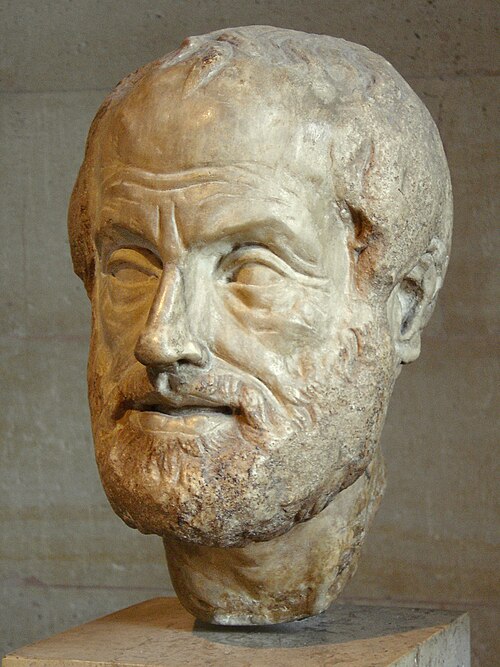Principlenoun
A fundamental assumption or guiding belief.
Principlenoun
A rule used to choose among solutions to a problem.
Principlenoun
Moral rule or aspect.
Principlenoun
(physics) A rule or law of nature, or the basic idea on how the laws of nature are applied.
Principlenoun
A fundamental essence, particularly one producing a given quality.
Principlenoun
(obsolete) A beginning.
Principlenoun
A source, or origin; that from which anything proceeds; fundamental substance or energy; primordial substance; ultimate element, or cause.
Principlenoun
An original faculty or endowment.
Principleverb
(transitive) To equip with principles; to establish, or fix, in certain principles; to impress with any tenet or rule of conduct.
Principlenoun
Beginning; commencement.
Principlenoun
A source, or origin; that from which anything proceeds; fundamental substance or energy; primordial substance; ultimate element, or cause.
Principlenoun
An original faculty or endowment.
Principlenoun
A fundamental truth; a comprehensive law or doctrine, from which others are derived, or on which others are founded; a general truth; an elementary proposition; a maxim; an axiom; a postulate.
Principlenoun
A settled rule of action; a governing law of conduct; an opinion or belief which exercises a directing influence on the life and behavior; a rule (usually, a right rule) of conduct consistently directing one's actions; as, a person of no principle.
Principlenoun
Any original inherent constituent which characterizes a substance, or gives it its essential properties, and which can usually be separated by analysis; - applied especially to drugs, plant extracts, etc.
Principleverb
To equip with principles; to establish, or fix, in certain principles; to impress with any tenet, or rule of conduct, good or ill.
Principlenoun
a basic generalization that is accepted as true and that can be used as a basis for reasoning or conduct;
Principlenoun
a rule or standard especially of good behavior;
Principlenoun
a basic truth or law or assumption;
Principlenoun
a rule or law concerning a natural phenomenon or the function of a complex system;
Principlenoun
rule of personal conduct
Principlenoun
(law) an explanation of the fundamental reasons (especially an explanation of the working of some device in terms of laws of nature);
Principlenoun
a fundamental truth or proposition that serves as the foundation for a system of belief or behaviour or for a chain of reasoning
Principlenoun
a rule or belief governing one's behaviour
Principlenoun
morally correct behaviour and attitudes
Principlenoun
a general scientific theorem or law that has numerous special applications across a wide field.
Principlenoun
a natural law forming the basis for the construction or working of a machine
Principlenoun
a fundamental source or basis of something
Principlenoun
a fundamental quality determining the nature of something
Principlenoun
an active or characteristic constituent of a substance, obtained by simple analysis or separation
Principle
A principle is a proposition or value that is a guide for behavior or evaluation. In law, it is a rule that has to be or usually is to be followed.
Paradigmnoun
A pattern, a way of doing something, especially a pattern of thought, a system of beliefs, a conceptual framework.
Paradigmnoun
An example serving as the model for such a pattern.
Paradigmnoun
(linguistics) A set of all forms which contain a common element, especially the set of all inflectional forms of a word or a particular grammatical category.
Paradigmnoun
An example; a model; a pattern.
Paradigmnoun
An example of a conjugation or declension, showing a word in all its different forms of inflection.
Paradigmnoun
An illustration, as by a parable or fable.
Paradigmnoun
A theory providing a unifying explanation for a set of phenomena in some field, which serves to suggest methods to test the theory and develop a fuller understanding of the topic, and which is considered useful until it is be replaced by a newer theory providing more accurate explanations or explanations for a wider range of phenomena.
Paradigmnoun
systematic arrangement of all the inflected forms of a word
Paradigmnoun
a standard or typical example;
Paradigmnoun
the class of all items that can be substituted into the same position (or slot) in a grammatical sentence (are in paradigmatic relation with one another)
Paradigmnoun
the generally accepted perspective of a particular discipline at a given time;
Paradigmnoun
a typical example or pattern of something; a pattern or model
Paradigmnoun
a world view underlying the theories and methodology of a particular scientific subject
Paradigmnoun
a set of linguistic items that form mutually exclusive choices in particular syntactic roles
Paradigmnoun
(in the traditional grammar of Latin, Greek, and other inflected languages) a table of all the inflected forms of a particular verb, noun, or adjective, serving as a model for other words of the same conjugation or declension.
Paradigm
In science and philosophy, a paradigm () is a distinct set of concepts or thought patterns, including theories, research methods, postulates, and standards for what constitutes legitimate contributions to a field.




